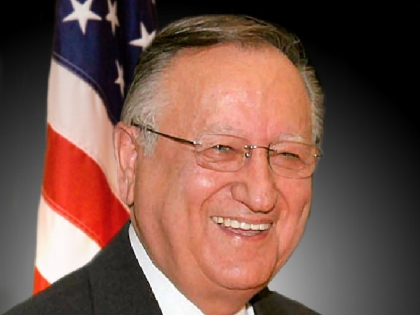
Senate Passes Ethics Reform Legislation
Frank Padavan
January 20, 2010
-
ISSUE:
- Ethics
New York State Senator Frank Padavan (Queens) announced today that the Senate has passed ethics reform legislation. The legislation calls for the establishment of an ethics commission, reestablishes the lobbying commission, greater disclosure of legislators outside income and enhanced campaign finance laws.
“New Yorkers throughout the state have made it clear they are tired of the way Albany conducts business,” Padavan said. “We have only taken what should be the first of many more actions that will end a pay to play culture and make the State Legislature and state government more accountable and transparent. Its abundantly clear much more work remains in terms of achieving comprehensive and proactive ethics reform.”
The legislation replaces the current Commission on Public Integrity with a six member board charged with the ethics oversight of the Executive branch. The legislation also reinstates the state Lobbying Commission and increases disclosure requirements for lobbyists. The Joint Legislative Commission on Ethics Standards (JLCES) would oversee legislative ethics related issues. The JLCES would conduct ethics training for legislative staff, issue ethics advisory opinions and impose penalties for public officers law violations.
A second entity, the Legislative Office of Ethics Investigation would oversee investigations related to ethics violations in the legislative branch. The legislation also requires better disclosure requirements for legislators outside income, greater enforcement of campaign finance laws and clarifies various definitions and provisions under existing ethics and campaign finance laws.
Padavan noted that the income disclosure provisions in the bill lack any requirements for legislators who are lawyers to list their clients. Padavan criticized the omission by the Democratic leadership by saying “you shouldn’t have two classes of citizens here. I don’t think it engenders public confidence.”
During the debate, Padavan introduced an amendment that would have strengthened the legislation under consideration by the Senate. Padavan’s amendment is identical to his legislation, S.3254, which calls for the establishment of reasonable disclosure requirements for all campaign consultants including those who also engage in lobbying state officials. Under the amendment, campaign consultants must register with the Ethics Commission and list employees, clients and fees for services. Currently, the City of New York, the City of San Francisco and the State of Texas have similar transparency measures in effect.
“The amendment I advanced would go a long way in providing much needed transparency and accountability at a point where the political, lobbying and legislative process intersect,” Padavan said. “This amendment and my legislation will break the practice of influence peddling by just requiring simple disclosure requirements for anyone who both practices in political consulting and lobbying.”
“ Such a provision included in any ethics reform package would not only strengthen ethics laws it would allow New Yorkers to make more informed decisions while protecting the public confidence in the electoral and legislative process. Blocking the inclusion of this amendment was a missed opportunity for the Senate Democrats to bolster their own ethics reform legislation.”
Padavan’s amendment was one in a series of amendments aimed at strengthening the ethics reform bill, providing more balance, equity and rid the ethics and campaign finance enforcement process from any politics. Each amendment was rejected by Senate Democrats.
“Stronger, more comprehensive reform initiatives must be a priority throughout the rest of the legislative session,” Padavan said. “I hope that the Senate Democrats will work with my colleagues and I in bringing about more reforms in an open process in order to end a culture of dysfunction and rancor in Albany. “
Share this Article or Press Release
Newsroom
Go to NewsroomPadavan Takes Part In Reach Out and Read Program
August 20, 2010